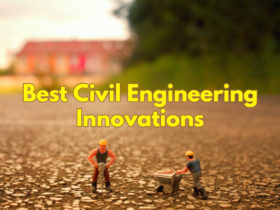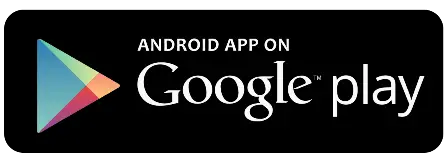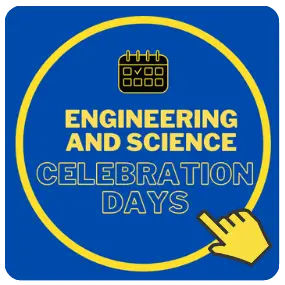Demand for engineers is at an all-time high as the industry is expected to add 70,000 new jobs over the next 7 years meaning you will have a lot of competition trying to hire your ideal engineer. Engineering firms need to stop waiting for the right person to walk through their doors. Go out and find the candidates you want and give them the tools they need to succeed. As the owner of Phoenix Engineering and Consulting, I know how difficult it is to find the right person for the job. To have a chance at attracting engineers, you need to know what an engineer is looking for beyond the money.
What engineering candidates are looking for in a company

When hiring engineers, they need to know they will be making an impact at your company. They also need to know they will be moving forward in their career, have opportunities to learn, and also teach. The best engineers want to be working on difficult problems that can allow them to grow and to add to their list of achievements. Engineers also want to work in a supportive environment where their thoughts and ideas are valued by their colleagues.
With that primer of what engineers are looking for, here is how to find the best people for your company.
When hiring engineers there are two questions you first need to ask yourself. What is the outcome you want for this position and what type of person would do best in that role? Then we also have the opposite side where we come across someone and maybe you don’t have a position for them. Ask yourself what this person can do to help your business and what position could you create where they would be successful?
Once you have a candidate you need to look at a few different areas to make sure the person will work out at your company. Are they a culture fit? Are they open-minded? Are they trainable? Are they willing to learn and teach, and do they have the skill set? You have to have a clear conversation with yourself as a company. What are the top three things your company hangs its hat on and does this person fit into these categories?
At our company, we are engineers who are very big into learning and continuing to grow. A culture fit for us is someone who is learning and is willing to teach. We’re also very big in our company on it doesn’t matter who the prospective engineer is, the length of a candidate’s experience or what they have done in their life. We ask ourselves if we can learn something from the candidate and can they teach us something.
We also see if the candidate is open-minded. You can find this out pretty quickly if they are open to discussing ideas and not all of their answers are about themselves. Also, if they say this is the way a job must be done and this is the only way, then maybe that person isn’t the right fit for your company. You want an engineer who is going to be a team player and open to everyone’s ideas.
Identifying the three tiers of candidates

When hiring engineers, you will come across three different kinds of candidates. People who used to be able to do the job and then became managers. People who have experience and the technical skill to do the job and finally the fresh out of college candidate.
People who used to do the job may say they have 30 years of experience, but they really don’t. They may have a couple of years of experience doing the job and the rest of the time was them managing people doing the job. They only knew how to do one thing a long time ago and they can’t do it anymore.
The people who have the experience and the technical skill to do the job are what you are looking for in an ideal candidate. It is also the hardest to find. These are the people who if they are any good already have a job. Seek out these candidates and see if they are ready to take on a new experience. Great candidates will come if you have something new and exciting to offer.
When it comes to college graduates you want to make sure they have some intern experience and are able to write about what they learned in school. If the candidate can’t write a couple of paragraphs on what they learned in labs, then maybe they didn’t go to an engineering school or maybe they didn’t pay attention in their classes. The candidates that can’t do this simple task are probably not a good fit for your company. You must also understand that a candidate from a top engineering school may have great grades but experience always trumps grades. What the candidate did in labs at school is experience.
Testing your candidates

Giving your candidates a task to perform during the interview process is another way to weed out candidates who may not fit within your company. I have a friend who owns his own business and one task he asks his candidates to perform is sending him fax. This may seem mundane to some but for the younger generation, they might not even have ever heard of a fax machine. By implementing small tasks like this into the interview process you can find the candidates who are willing to say they don’t know how to do something but are going to find an answer to the problem.
At our firm, we give candidates a diagram they have to figure out, and is something any engineer should be able to do going back to college. I then sit there and wait. One of the key things as an engineer is being able to admit when you don’t know how to do something. This is something we need to know before we can move forward because we can see if they know how to do the problem and also their limitations. Figuring this out early in the interview process can help save you time in your candidate search.
Talking about salary

When going through the interview process with a potential candidate it is important to discuss salary expectations. During the interview, we ask our candidates three questions in regard to salary. What is the minimum salary for them to live, because everyone has to pay their bills and have some amount of money to feel respected? Then we ask, what would you really like to make and finally what would blow you away?
After we ask these questions to the candidate, we continue our discussion of other topics and circle back to these questions. In circling back to these questions, it gives the candidate a bit of time, in order to think about their answers. We discuss salary in this way because for us if someone wants a million dollars then we just need to make more than a million dollars. If the candidate can help us do that, then that is going to be a perfect fit.
Discussing salaries with candidates is an important part of the hiring process because you can get a sense of how the person views themselves in their line of work. Often people can undervalue or overvalue themselves. Once you have agreed on a number with the potential hire then it is time to put them to the test through a probationary period or what we call a trial run.
Have a trial run

Once you have hired your candidate then it is time to see how they do in their job and how they work within the company. This is also a time for the candidate to see if the company is standing up to its end of the deal. I typically have candidates do a two-week trial at our company. During this time, you can see if your new hire is competent, coachable, and a good culture fit.
This is also a time where the candidate can decide if the job and company are really right for them. If it is their fifth day and no one has taken the time to talk with them, taken them to lunch, or help train them, then is the candidate really going to want to stay with your company? Most likely not. Take the time to talk to the new employee. Get to know them or take them to lunch. Get to know your new candidate and give them the tools to succeed.
At the end of the two weeks sit down with them and ask them how things went. Ask them questions such as did we meet your expectations? Did you feel challenged? Do you feel trained? Do you have what you need to be successful and do you want to be here? If their answer to any of these questions is no, then work with them and see how you can help fix the issue.
Finding the perfect engineering candidate is more difficult than it has ever been due to the high demand in the industry. Understanding your company and the kind of candidate you desire will help you find the right person for the job. Remember to make sure the person can do the job, is willing to learn/teach and has an open mind that fits in with the culture of your company. Finally, keep in mind during the hiring process; experience always trumps grades.
Author: Zane Pucylowski is the President and Principal Engineer at Phoenix Engineering and Consulting in Atlanta, Georgia. He is also a part-time faculty member, teaching labs in the Mechatronic Engineering department at Kennesaw State University.




![Types of Engineers and What they Do [Explained]](https://www.engineeringpassion.com/wp-content/uploads/2022/04/types-of-engineers-and-what-they-do-280x210.jpg)





Leave a Reply